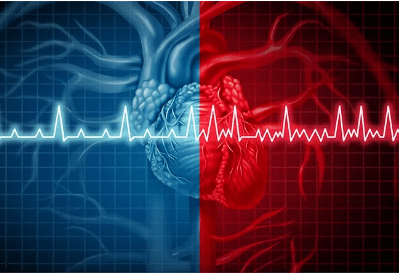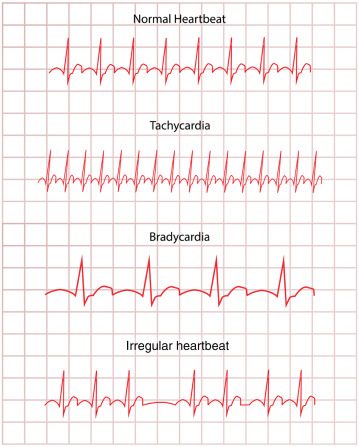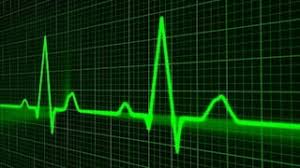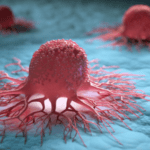What is the Pulse rate?
The Pulse rate is a measurement of the heart rate, or the number of times the heart beats per minute. As the heart pushes blood through the arteries, the arteries expand and contract with the flow of the blood. Taking a pulse not only measures the heart rate, but also can indicate the following : Heart rhythm, Strength of the pulse.
The normal pulse for healthy adults ranges from 60 to 100 beats per minute. The pulse rate may fluctuate and increase with exercise, illness, injury, and emotions. Females ages 12 and older, in general, tend to have faster heart rates than do males. Athletes, such as runners, who do a lot of cardiovascular conditioning, may have heart rates near 40 beats per minute and experience no problems.
Heart Rate Variability (HRV)? Normal, High, and Low
A normal heart rate is usually stated as 60 to 100 beats per minute. Slower than 60 is bradycardia (“slow heart”); faster than 100 is tachycardia (“fast heart”). But some experts believe that an ideal resting heart rate is closer to 50 to 70.
Heart rate variability (HRV) is the measure of variations between consecutive heartbeats. HRV is controlled by your autonomic nervous system (ANS).

Bradycardia and Tachycardia
Bradycardia and Tachycardia are two forms of irregular heart rates, or arrhythmias. These arrhythmias occur in the upper or lower chambers of the heart. Normal heart rate is 60-100 beats per minute.
- Bradycardia: This is an irregularly slow heart rate. When the electrical impulse that tells your heart to contract is not formed in your heart’s natural pacemaker—the SA node—the natural rhythm of the heart will be thrown off. Bradycardia most often affects elderly people, however, it has been seen in very young people as well. There are normally two causes of Bradycardia: When the central nervous system is not sending the proper message to the heart to beat due to damage, or when the heart’s natural pacemaker is damaged.
- Tachycardia: This is an irregularly fast heart rate (100 beats per minute or more). Depending on where the fast heart rate begins (what chamber of the heart), will determine what type of tachycardia it will be classified as, ventricular, or supraventricular.
Symptoms of Bradycardia and Tachycardia

- Near-fainting or fainting
- Dizziness or lightheadedness
- Fatigue
- Shortness of breath
- Chest pains
- Memory problems
- Tiring quickly during physical activities
- Feeling like your heart is racing/palpitations
- Seizures
Ways to Prevent Bradycardia and Tachycardia
- Eat a healthy diet.
- Exercise regularly to maintain a healthy weight, reduce stress, release positive endorphins and improve mental clarity.
- Keep blood pressure and cholesterol under control.
- Do not use recreational drugs as they may have stimulants within them.
- Manage stress because stress adversely affects the heart.
- Go to scheduled visits with your doctor.
- Limit caffeine as it is a stimulant and may cause an elevated heart rate.
- Use over the counter drugs with caution as some ingredients (stimulants) may cause an elevated heart rate.
- Avoid excess alcohol intake.
Both Bradycardia and Tachycardia are caused by an electrical problem within the heart. The Sinus node (the heart’s natural pacemaker), located in the right atrium, sets the beat that the heart will function at. The electrical imbalance is what causes the sinus node to operate improperly. Although this is a problem, it is not untreatable. Devices such as pacemakers, medications and procedures can remedy the situation. Either a slow heartbeat (Bradycardia) or a fast heartbeat (Tachycardia) can turn into a serious issue if not treated promptly and properly so make sure to contact your doctor to determine the best plan of care for you.


